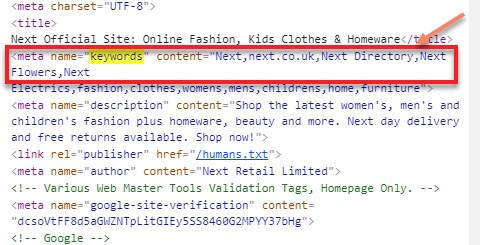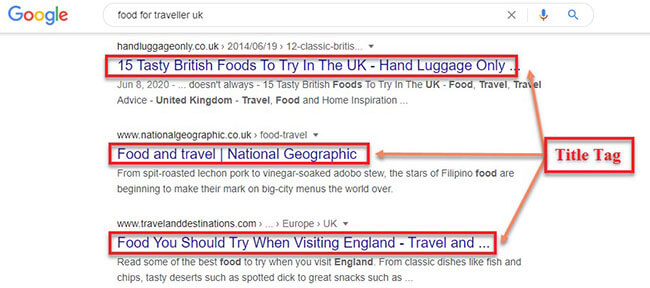Why Recruiters Need to Pay Attention to Their Meta Tags
With intense competition these days, recruiters need to establish a robust online presence so they can reach their target and gain a substantial number of leads. One way to do this is through on-page SEO. By optimising the various on-page elements of your recruitment website, you can improve your search rankings on Google. The higher you rank on Google, the easier it is for employers and job candidates to find you.
Of all the on-page elements of your website, meta tags are something you should pay close attention to. Not only can they help you make your site more search engine-friendly, but they can also help you rank well on Google.
Contents
Meta Tags Explained
Meta tags are small snippets of text that helps search engines, such as Google, understand the contents and nature of your webpages. The “meta” in meta tags refers to “metadata,” which is the type of information they offer about your website. You won’t see these tags on your webpages because they are only visible to search engines and the people viewing search result pages (SERPs).
As with the other web elements, search engines don’t solely rely on meta tags to rank your website. However, these small pieces of text can help boost your SEO strategy. It is because meta tags affect how your website appears on search result pages. If your site has well-written meta descriptions, users searching for relevant information are more likely to visit your site. In return, this helps increase your click-through rate or CTR, which Google and other search engines use to decide your search ranking.
What Are the Different Types of Meta Tags?
Technically, there are many different types of meta tags. However, some of them are considered irrelevant to online marketing. It is because they don’t help that much when it comes to optimising your site for search engines. As such, we’re only focusing on the following tags:
1. Meta keywords attribute
The meta keywords attribute refers to a series of relevant keywords used in a particular webpage. A few years ago, this meta tag was a handy SEO tool. Marketers who wanted to attract more traffic and page views would employ keyword stuffing and incorporate irrelevant yet trending keywords in their web content. When Google discovered that the meta keywords attribute was being abused in this manner, it immediately devalued the meta tag. As a result, you’ll need to do more than use the right keywords in your recruitment site and career pages to rank well on Google.
2. Title tag
The title tag is the line of text you’ll see on top of your web browser. You should include relevant keywords in your title tags because search engines treat them as the title of your webpages. For this reason, the title tag is often considered the most important meta tag.
Apart from helping you optimise your site for search engines, the title tag also allows you to improve your web visitors’ overall user experience. It enables visitors to navigate your website quickly and differentiate one webpage from the others.
3. Meta description attribute
The meta description attribute is a vital meta tag as it helps both users and search engines determine what your webpages are all about. It provides a summary of the contents of a specific webpage. If you’re wondering what it looks like, the meta description is that tiny block of text that appears on Google, along with the title and link to your webpage.
Here’s a quick note, though. Your webpages’ meta descriptions don’t always appear in SERPs. At times, Google will choose a snippet of text from your webpage and present it to users searching for related information.
Despite this, meta descriptions can be quite useful when you want to attract more traffic to your site. For example, by writing a compelling description, it will be easier for you to pique the interest of both employers and candidates and convince them to click on the link to your site. Meta descriptions are even more potent when they contain the keywords a job seeker or employer used in their search query.
By ensuring that your web and career pages have compelling meta descriptions, you are increasing your chances of receiving higher CTRs. In return, it enables you to obtain excellent rankings on Google, which helps you establish better brand awareness and greater online visibility.
To make sure that all of your webpages have compelling meta descriptions, take a look at the following pointers:
- Limit the length of your descriptions to a maximum of 160 characters.
- Tell your audience exactly what they can expect when they visit your page.
- Create inviting meta descriptions.
- Don’t forget to include a call to action.
4. Meta robots attribute
Meta robots have one straightforward task: to tell search engine bots what to do with your webpages. There are two ways you can instruct Google search bots via the meta robots attribute:
- Index/no index – tells search engines to show/not show a webpage on SERPs.
- Follow/no follow – lets search engines know if they should trust and “follow” the links found on a webpage or not.
Don’t Neglect Your Meta Tags
Meta tags are essential to the success of your recruitment site. They tell both your target audience and search engines what your website is all about. They also help entice potential clients and candidates to click on your link. As discussed earlier, meta tags have four essential types. Knowing what their uses are can help you better optimise your tags for search engines.
At Recruitment Traffic, we can help you optimise your meta tags and every part of your website for search engines such as Google. Please speak with us today to obtain the SEO solutions you need.
Drive Your Recruitment Business Towards The Best Results.
Talk to us about how we can help.









